The single biggest factor shaping new measure in American verse is time. As I listen to Bach I engage in the pleasure of the music’s unhurried pace, its calm assurance in returning to the harmonic center, its way of stringing out endless variations on a theme in slightly different tones and patterns so that its reverberations can echo in me long after the piece is finished. In some ways it almost seems to exist outside of time, at least outside of any time that I can relate to. It is a montage of pastoral scenes, the rhythms of country life, it could only exist in the modern American City if it were the soundtrack to a film, which depicted (as Woody Allen, for example, is so good at doing) two lovers searching for each other in the city streets. The heightened emotion would somehow stand in for the sense of leisurely time.
If that doesn’t make sense, let me come at it another way. I had meant to mention in my “Rhyme†essay that a well-thumbed rhyming dictionary ought to be part of any poet’s toolkit – preferably two or three, because no two are alike. At some point one ought to have gotten acquainted with various forms, although to master, say, the sonnet, seems an almost ludicrously superfluous task for the modern poet. Yet, if only for the sake of appreciating the effects produced in different forms while reading them, it seems incumbent upon any poet to spend a year or so really focusing on those forms. And it is possible to write a sonnet – I’m thinking of John Clark and Ted Berrigan – that doesn’t rhyme and yet shows a deep understanding of the sonnet and seems perfectly modern in every way.
But for most of us there is an immediate problem – time in the sense both of spending it on mastering those forms and time in relation to the forms themselves. Suppose I have a rush to have something to say. The urgency of my speech is not likely to mimic even remotely a fixed form, which is close to what Williams is getting at when he talks about paying attention to American speech. We have such a confluence of tongues, dialects, idioms, jargon, localized speech patterns and rhythms that already you are faced with the radical shattering of anything that might’ve worked for English verse, which was already somewhat uneasily retrofitted to forms that derived largely from Romance languages but due to the brilliance of its early practitioners, and the richness of English as it was fed by the converging streams of Anglo-Saxon and Latinate words, they managed to get away with it for a few centuries at least.
Williams starts to get at something when he talks about the attempt to mimic the rhythms of jazz, which is to Bach as modern physics is to the science of Newton – a splitting apart of the rhythmic atom into smaller and smaller (faster and faster) units with no fixed law, but only a swinging relative beat from one measure to the next. Clark Coolidge writes about this in his essays on Jack Kerouac’s relationship to jazz and by extension his own. He writes of how bop (Charlie Parker et al.) began to give an equivalent value to each of the four beats in a 4/4 measure, which is clearly not indicated in the Bach piece or in the traditional sonnet form, both of which move around a strong sense of return to center over time. The implications of the evening out of beat values (Clark says) led to longer breath measures and ultimately to no fixed return, so that ultimately you get the timeless time of Ornette Coleman and free jazz beyond that.
I believe this has to do with the jamming or wadding up of our time into smaller and smaller units. Literally – the time one has to get from point A to point B, to conclude an utterance and be heard. The sprawling out of our towns and suburbs, the divvying up of attention, the narratives that float around disembodied in space – all of these point to a less and less structured silence, a more and more frenzied saying, a compression almost beyond reason to begin to get one’s point across. It is difficult to exaggerate the sense of disorientation one feels upon arriving in a big city after some time away. Wordsworth could barely stand to be in one, but now it is our default mode of existence; where there is not City we pipe it in via cellphone, television, e-mail, we are “wired†from the moment of waking up.
Who has time to learn how to write a sonnet? And why bother, when the time it would take to master the form would almost certainly still not produce one that could rival even a trifle of Shakespeare’s or Donne’s? Clark and Berrigan, and probably a few others I’ve forgotten or don’t know about, have come up with eloquent answers to this problem, but they are freaks on the poetic landscape. It is exhilarating to think that the problems proposed by our TIME in every sense of that word have barely begun to be addressed, that the poetry of Williams, his modest experiments, still seem radical and fresh when compared with much of what’s written today. Daunting, too, to be faced with the issue of having to find that center for oneself in any useful way for the art of poetry, but that’s for another time.


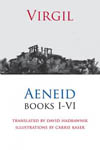
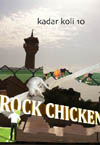
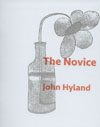
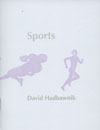
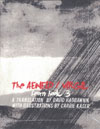
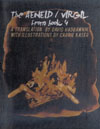
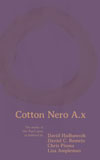

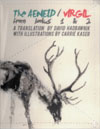
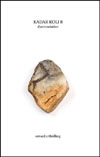
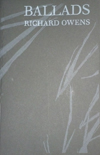
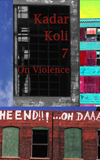
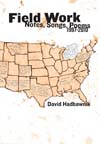
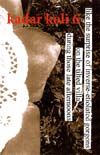
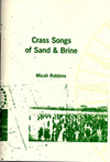
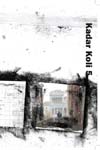
One of the things that’s repeatedly struck me is that when I say something like “Rhyme’s a great tool. Fun too. It’s really worth using,” the implication to others is often that I think they should be writing sonnets or what not. However, David, in your comparison of time in jazz compared to time in Bach, say, I think you strike on something of the same issue in poetry.
See, I don’t think what’s needed is to write more sonnets or villanelles or haiku, etc. (although that can be fun and instructive– both as a reader and writer), but that more writers ought to be thinking of sound and form when writing, a sound and form that they are molding, dancing on, shifting all the time, rather than being shifted to, which is perhaps what happens when they write a formal sonnet. When you break a sonnet down to what it really __is__ you’re really talking about syllables, about rhythm and meter, cadence, measured beats and countermeasures, shifts in tempo, pauses, etc– namely, creation of communicative EMPHASIS through sound (melopoeia) and through the intellectual rigors of the form (logos, perhaps). In general, for example, its really only bad Shakespearian sonnets (both contemporary and classical) that follow iambic pentameter to the “t”, that have no play in them, no shift and reshift in tempo. Using a form well means you really _use_ it, not that you conform to it.
This is what I really take from reading and writing older, more traditional forms– not, per se, that I should be writing more …. essentially archaic forms, but that I should be seeing poetry, atleast partly, in the same way that poets at that time were perhaps seeing the discipline. For all that’s been gained in the last century– immediacy, perhaps linguistic relevance (i.e. speaking voice on the page, real breath there), openness of topic, etc. — there’s a lot that seems to have been lost with the rise to dominance of free verse, most of which is really seen, in my opinion, in the very baggy, very unfocused, inattentive approach to sound and form.
In college I read a lot of Levertov’s essays on Open Form, and there’s a lot that she got right in there, and that sense that we, as poets writing free verse, get this amazing opportunity and responsibility to create a meaningful forms on the fly, rather than to be dominated by set forms is very real. It’s often this same sense of underlying cadence, of riffs off a certain beat, of leaving the melody of a song so that you can really return to the structure and form of it that I see in jazz, and really why I find it so exhilarating to listen to it.
I guess I’d like to be seeing more of that in contemporary poetry as well, which means, I suppose, that I think “Time __should__ be the most important thing in Contemporary American Poetry”, but that, frankly, it really isn’t. Most stuff I read is terribly flacid in terms of rhythm, sound, and form. It might be very immediate in terms of word choice and syntax, but there doesn’t seem to be any discipline in it.
It’s not as if jazz musicians are pushing random sound out their instruments– there’s an amazing amount of practice and preparation and forethought that goes in to improvisation– you have to know for, and use form, to dislodge yourself from it. I think that desire to somehow be “formless” and off the cuff is very dangerous unless you’re really very skilled and prepared from the get-go… A lot of stuff I read that seems to be written in a hurry, to be solely immediate, just feels undrafted and blase to me. It has no real tension in it– no thinking tension and no sound tension, and that’s the stuff that actually makes for good reading.
Curious that we’ve been getting — and publishing — a good deal of prose poetry (though, as a category, the only thing these works have in common is that they eschew any sort of line break) in the online journal at tx state. i have no idea why. it’s a chicken and egg thing — are there more good poets turning to this form, or is there something inherently appealing about the form (to the folks reading for the journal)?
Who knows? It does tend to stand out from the hodgepodge of, as you say, flaccid free verse that we get. but i don’t think there’s any more room for fat in a good prose piece than a more structured poem. the word tension is good — i think, as “the other Steve” has mentioned in our workshop, that taking on form can be a good way to impose some sort of obstacle course for a poet and keep some of the looseness out.
do we think of form as leg braces that will fly off once we start running, like forrest gump’s? or should we always be thinking of form, even if it’s organic?
You know, I guess the most important thing, in the end, is that the work moves us. So, in that regard, I don’t really care what form it has– sonnet, prose poem, free verse, song lyrics, etc. BUT, I do take pleasure in the form (as in– linebreaks, line length, stanzas, overall form as well as a “micros” sense of it) of poetry– and if you’re not using line breaks to create cadence and emphasis, than I don’t really see any reason to call it poetry. That doesn’t mean it fails as art, it just means I don’t think its poetry. Poetry, to me, is the closest form of writing that we get to song, and if you’re not using the line, sound, etc. then you’re writing prose. Maybe superb prose that’s far better than it would be as a poem, but still prose.
Writing’s a very personal process. Everybody has different methods. Can you have your cake and eat it too? I dunno. Maybe. Sometimes I focus on form, sometimes I don’t. Sometimes I start with a lucid sense of feeling and let it sprawl all over the page, and then, as I draft it, I begin to see the form clearly, and how the form might help express the piece better. I don’t generally start with a form in mind (although I’ve done that too), but I don’t see any reason why someone couldn’t. And when I’ve done so, I’ve found the restraints exhilarating– it’s made me think more about what I’m saying, how to condense it, what’s really important, etc.
However, again– as for prose poetry– why wouldn’t someone use line breaks? And often, a lot of prose poems I read dont even have the sort of uber-heightened sense of image, sound, cadence, and metaphor that I expect from poetry. It just seems like a nice piece of short prose that they couldn’t find a venue for. And calling it poetry meant that someone would publish it even though it was short. Perhaps that’s short-changing the form, but I’ve never really understood it. Prose poems just seem like flash fiction or vignettes to me. There’s no real “poem” in it.
Read Michael Benedikt’s *Mole Notes,* or anything by Russell Edson. There is certainly a poetic sensibility at work in those texts.
Thank you for the info. I’ll try and check them out. Perhaps the real question then is still the same as always. How do you define poetry? Line breaks, and all that they designate and imply, would the first thing I’d say. I can appreciate that certain prose pieces have a poetic sensibility, but I don’t know if that makes them poetry. Perhaps, though, others define poetry differently, and thus other texts “qualify”, so to speak. I guess I’d have to check out those specific texts to get a sense. But, for example, I’ve read some Lyn Lyfshin (spelling?), and didn’t really consider her prose pieces poetry, although they don’t really abide by any of the typical standards of popular prose writing either.
Other Steve, I looked at your suggestions, and I just don’t see how one would call that poetry. It seems like interesting prose writing, but I’d never call it poetry. I don’t call Calvino’s “Invisible Cities” poetry either, but it’s a fascinating read of essentially page long pieces. I guess I’d like hear how other people are defining poetry. Devices like metaphor or heightened language just aren’t ….solid enough for me. They occur in poetry, but they don’t define it. They occur in all kinds of great writing. It’s really only the line break that definitively does it for me, and all the ways for which that is used.
When we were speaking about form earlier, I didn’t just mean sonnets or rhyme schemes, but the way in which language and sound is orchestrated on the page visually– using spacing, stanzas, and line breaks. That’s form to me, or atleast the way it could be used in contemporary poetry. And I guess that yes, to me, that should always be in a poets mind as they draft (or write) a poem.
Steve, in a sense, I’m with you — there’s a very strong resistance in me towards considering anything that doesn’t make use of the line break “poetry.” Yet, I’m less and less interested in poetry as such.
Briefly, an experience: not too long ago I was up late straining to write poetry of the line-break, lots of space on the page sort. Finally I got through to something and had one of those nights where I woke up every 20 minutes or so to write another one down, till I had filled up half a notebook and not gotten much sleep. it was the classic exhausting, gratifying, inspiration-based poetry deal. and i woke up feeling tired but good.
when i went over the stuff a couple days later, though, i was dismayed to find it was mostly crap. and the worst kind of crap — half-baked, with lots of “aha!” twists and endings. there were some good lines, but they were buried in overdone triteness. i suppose i could have forced myself to go back and revise away from that stuff, but then i thought, why not just collect all the good lines, trash the rest, and let them stand on their own?
since i had been reading r. juarroz, the decent lines were all sort of aphoristic, so i called them aphorisims. and wrote more of them. and found that this weird (but somewhat traditional) form opened doors in several directions, which i’m in the process of exploring (but which, admittedly, could also become a schtick).
at any rate, i do think the piece as a whole can be called a poem, though i’m more interested in the richness it offers, the possibility for ambiguity, polyvalence, and challenges etc. than worrying what it’s called. as the other Steve mentioned in relation to edson and mole notes, what drives it is a poetic sensibility — these are not aphorisms in any useful sense — that happens to come out in prose.
Oh, I agree– as I said in the first post… the real key is if it moves you. Who cares if its experimental prose, a play, a poem, or a novella, etc?
Still, somehow it urkes me when people slip (or what seems to me like a slip) the prose poem into the label of poetry. I can’t quite say why…. Perhaps, it’s because the label of a short prose pieces as a prose poem tends to demonstrate a certain way of seeing poetry in general– one that generally puts very little importance on sound and rhythm, things which are key to how I both read and write and love poetry. Thus, there’s a certain sort of “hidden”/unsaid agenda to the whole thing that I’m very wary of. In truth, I really think it’s part of what’s at the root of a lot of the “bad” poetry being written.
You can do certain things with prose that are hard or almost impossible to do in poetry, and vice versa with poetry. Each form has its real strengths, and I think its just a useful thing to recognize the tools that each form is really offering you. So much poetry I read could just as easily be a short prose piece– and if that’s the case, it probably should just as well be…. the piece isn’t really taking advantage of being a poem as the linebreaks and spacing don’t really _do_ anything. You might as well have the piece take advantage of the things prose can do instead. But then its prose to me, instead of a prose poem.
If there’s a real reason for linebreaks and spacing and pauses and oral orchestration on the page, then it should be a poem and use the tools of a poem. Labeling each as it is just somehow indicates a better understanding of what each form is capable of, rather than the nebulous and practically undefined label of a “prose poem”, which really makes almost no differentiation between a poem or a piece of prose. Essentially, it seems to reflect the sort of attitude that the two forms are capable of doing the same things, when they’re so obviously not. And its that attitude which seems to be leading (in part) to a lot of bad, boring, tensionless poetry being written.
I dunno. Does that make any sense?
all this true ONLY if the page is where poetry resides.
Um….. So what are you getting at? That felt a bit like a devil’s advocate kind of statement.
I’m not saying poetry ONLY resides on the page, but I think it’s terribly oversimplified to say that it doesn’t spend a hell of a lot of time on the page– even if that’s just a notation for oral performance. Other Steve, what’s your opinion? Are you saying poetry in the US is an oral medium, like singing or theater? In many ways I’d prefer it to be, but the truth is that, in my opinion, atleast culturally, its really not. I feel like I’m always fighting an uphill battle to get orality really embedded in poetry– it just doesn’t really feel like part of how most poets see it.
Doesn’t just matter how poets see it, matters how they hear it, which they do automatically every time they see it, since the parts of the brain that “hear” are activated when you read. There is no escaping the way a poem sounds read out loud because you are reading it out loud even when you read it to your self.
If the oral and the aural are closely connected, and if the aural is always activated when reading silently, there is no way to escape the oral. The only thing you can do is limit the audience.
It was certainly not a “devil’s advocate” statement. A line should have more to it than how it looks, and if it doesn’t — which tends to be the case suggested by the way most reads their lineated poems out loud — then prose poetry makes perfect sense. If I use lines, it is for the sound and the energy they create, not because I think poetry should have lines.
. . . and sorry about that typo.
I guess I am just very confused by both of your comments. I felt like everything I’ve been saying is in exact agreement with what you two are saying.
Other Steve, you said “All this is true ONLY if the page is where poetry resides” (which I assumed was in response to my post just above that comment)– as if that were my opinion and you were refuting it, when in fact I’ve been trying to say the exact opposite. I don’t think poetry really ought to reside on the page. What makes it dynamic is sound.
The only reason I’ve been talking about linebreaks and spacing and stanzas is because I felt those things really ought to be (in large part) visual footnotes for an oral reality. Perhaps I was really unclear in all these posts.
Same argument, different conclusions?
or, it’s a semantic thing?
I think we’re all in agreement that line breaks are there for a reason, and that reason (-s) is not just window dressing to make a piece of writing look like a poem.
But we don’t agree that a poem must or should have line breaks in order to be a poem.
In my case, as I mentioned, I’m less and less concerned that something IS a poem.
And one thing to add to my “experience,” described above: I’m glad that I didn’t meld those lines into “poems.” If I had, I think they would have lost something, and not been nearly so generative as they were, and continue, to be.
But thanks for this, everyone; it’s been most interesting to think and debate about.